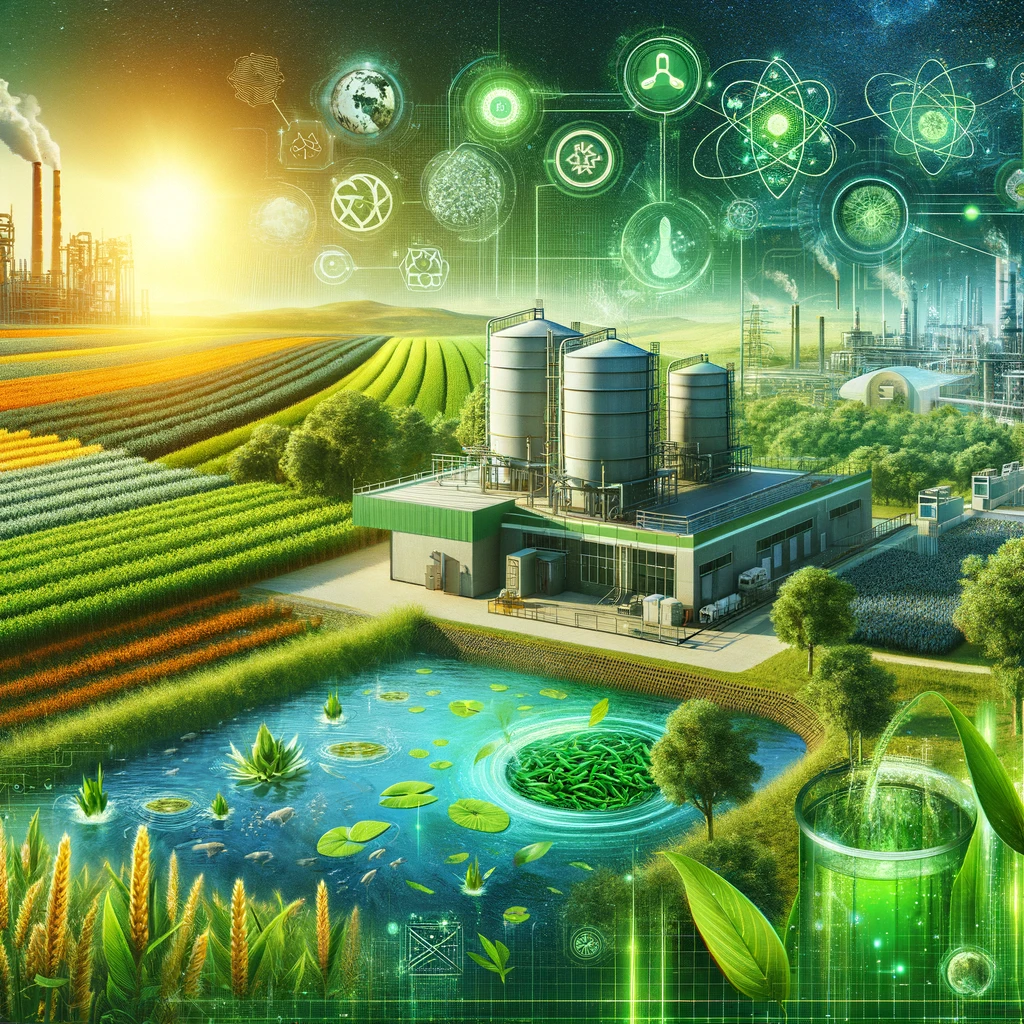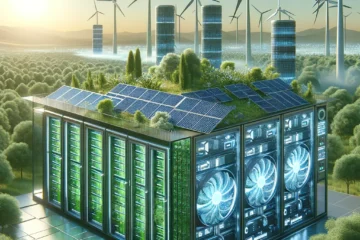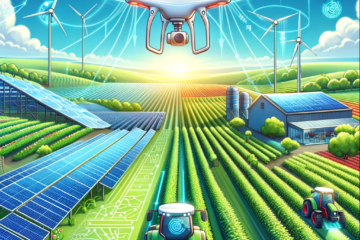In recent years, the quest for sustainable energy has brought biofuels to the forefront of environmental and energy discussions. These renewable energy sources, derived from biological material, represent a promising alternative to fossil fuels. Innovations in technology are now igniting a new era of biofuel production, enhancing the viability and efficiency of these green energy sources. This article delves into the advancements propelling biofuels into a significant player in the global energy landscape, exploring the latest breakthroughs and policy developments that are fueling the green energy revolution.
The Rise of Biofuels
Biofuels have ascended from a niche alternative to a pivotal component in the global strategy to reduce carbon emissions and combat climate change. Derived from biomass, such as plants, algae, and organic waste, biofuels offer a renewable and potentially carbon-neutral source of energy. The surge in popularity is driven by the recognition of their role in diminishing reliance on fossil fuels, thereby lessening the environmental impact of transportation and energy production. The drive for sustainable development, along with advancements in biofuel technologies, has sparked significant investment and research, setting the stage for a more sustainable energy future.
Breakthroughs in Bioenergy
The bioenergy sector has experienced a series of breakthroughs that have dramatically improved the efficiency and scalability of biofuel production. One such innovation is the development of advanced enzymatic processes that can break down cellulose in plant matter more effectively, thereby increasing the yield of biofuels. Genetic engineering has also played a role, with scientists modifying organisms to enhance their ability to produce biofuels. Additionally, process optimization and integration have led to more cost-effective and energy-efficient biofuel production methods, making bioenergy a more competitive option in the energy market.
Algal Fuel: A Game Changer
Algal fuel, derived from algae, is considered a game changer in the realm of biofuels. Algae can be grown in a variety of conditions, including brackish water, and they multiply rapidly, ensuring a continuous, reliable supply. Moreover, algae consume carbon dioxide as they grow, which could help offset greenhouse gas emissions. Technological advancements in algal cultivation, harvesting, and processing are enhancing the commercial viability of algal biofuel. As the technology matures, algal fuel holds the promise of providing a sustainable and scalable energy solution with a minimal environmental footprint.
Waste to Watts: New Tech
An innovative approach in biofuel production involves converting waste into energy, often referred to as “waste to watts.” New technologies are enabling the transformation of organic waste, ranging from agricultural residues to municipal solid waste, into biofuels. These advancements include gasification, anaerobic digestion, and pyrolysis, which are processes that break down organic matter to produce biogas or liquid biofuels. By utilizing waste as a resource, these technologies not only reduce the volume of waste headed to landfills but also create an additional stream of renewable energy, contributing to a more circular economy.
The Efficiency Evolution
The evolution of biofuel efficiency is characterized by continuous improvements in feedstock production, conversion processes, and end-use technologies. Crop breeding and genetic modification have led to higher yields of biofuel feedstocks while reducing the inputs required, such as water and fertilizers. In terms of conversion technology, advancements in catalysis and fermentation have increased the speed and efficiency with which biomass is converted into usable fuels. Finally, modifications to engines and energy systems ensure that biofuels are used as efficiently as possible, further reducing the environmental impact and improving the economics of biofuel-powered solutions.
Policy Sparks for Biofuels
Policy frameworks play a critical role in catalyzing the development and adoption of biofuels. Governments around the world have implemented various policy instruments, such as mandates, subsidies, and tax incentives, to encourage the production and use of biofuels. These policies are designed to create a favorable market environment for biofuels, promote research and development, and facilitate infrastructural adjustments necessary for widespread adoption. As the urgency to address climate change intensifies, policy measures are expected to become even more supportive, driving innovation and investment in the biofuel sector.
In conclusion, the landscape of biofuel technology is ablaze with innovation, presenting an ever-brightening future for this sustainable energy source. From the rise of biofuels as a key component of the renewable energy mix to groundbreaking advances in bioenergy production and efficiency, these green sparks of technology are fueling a revolution in the way we power our world. Algal fuel and waste-to-energy technologies are reshaping our understanding of what’s possible, while the evolution of policy continues to provide the necessary catalyst for change. As we venture further into the 21st century, the advancements in biofuels not only represent a triumph of human ingenuity but also offer a beacon of hope for a cleaner, more sustainable planet.




